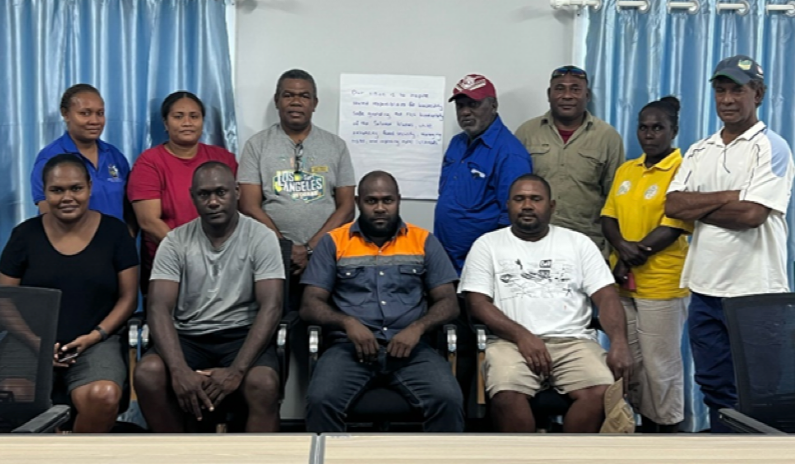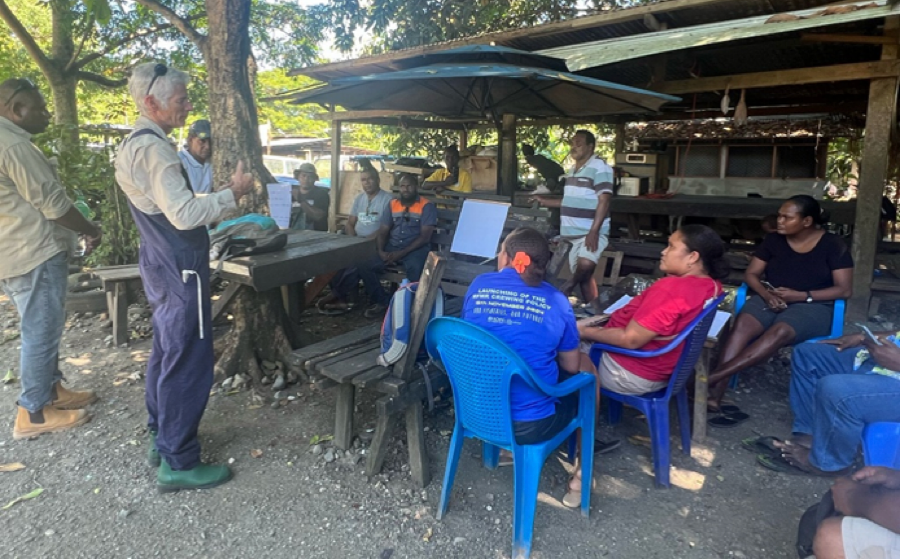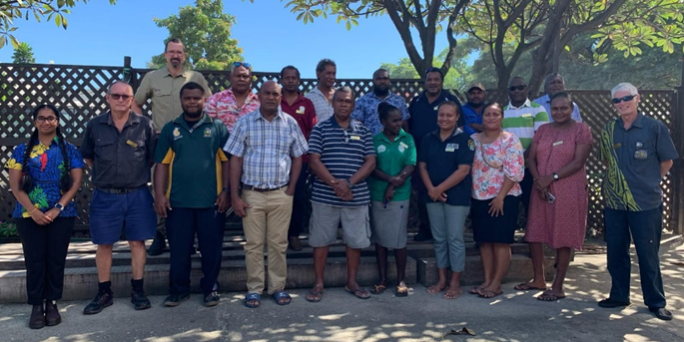The Ministry of Agriculture and Livestock (MAL), in collaboration with the Australian Department of Agriculture, Fisheries and Forestry (DAFF), successfully hosted a three-day Animal Biosecurity Prioritisation Workshop from 31 March to 2 April at the King Solomon Hotel in Honiara.
The workshop brought together 22 key participants from across the livestock and biosecurity sector to assess, prioritise, and enhance the Solomon Islands’ national animal biosecurity system.
The workshop aimed to explore country-level opportunities and challenges for refining biosecurity and animal health systems, while developing actionable recommendations to improve national preparedness and response to biosecurity threats.
With support from DAFF, a facilitated self-assessment of the Solomon Islands’ animal biosecurity system was conducted, enabling in-country stakeholders to identify key gaps, optimize resource allocation, and develop targeted strategies.
The workshop attracted participants from various sectors including government officials, primary producers, industry representatives, and NGOs. Discussions focused on the broader national biosecurity framework, livestock value chains, and on-farm biosecurity practices.

Participants evaluate the current system strengths and areas needing improvement. Emphasis was placed on reducing the risk of transboundary animal diseases, protecting rural livelihoods, and enhancing food and nutrition security.
Deputy Secretary Special Duties, Mr. Simon Baete, officially opened the workshop and expressed sincere gratitude to the Australian DAFF team for their continued partnership and support. He acknowledged their vital role in strengthening knowledge exchange and collaboration in animal biosecurity.
“This workshop is not just about learning, it’s about fostering collaboration, sharing experiences, and developing practical solutions tailored to the needs of our local farming communities,” Mr. Baete said.
Mr. Baete further encouraged participants to remain focused on the shared goal of strengthening the national biosecurity framework to protect agricultural resources, ensure food security, and sustain livelihoods.
Mr. Robert Palmer from the Livestock Department noted that the workshop served as a valuable platform for fostering deeper engagement and collaborative discussions among Livestock and Biosecurity stakeholders.

“There were productive exchanges on key areas such as border controls, internal monitoring, and farm-level biosecurity. I hope the recommendations from this workshop will be taken forward promptly to enhance biosecurity strategies in the Solomon Islands,” Mr. Palmer said.
Over the course of the workshop, participants engaged in activities such as value chain risk assessments, pathway analysis, and the development of on-farm and personal biosecurity protocols. The insights gathered will play a vital role in informing future biosecurity initiatives and policies.
This workshop marks a significant step towards building a more resilient and responsive animal health and biosecurity system for the Solomon Islands.










